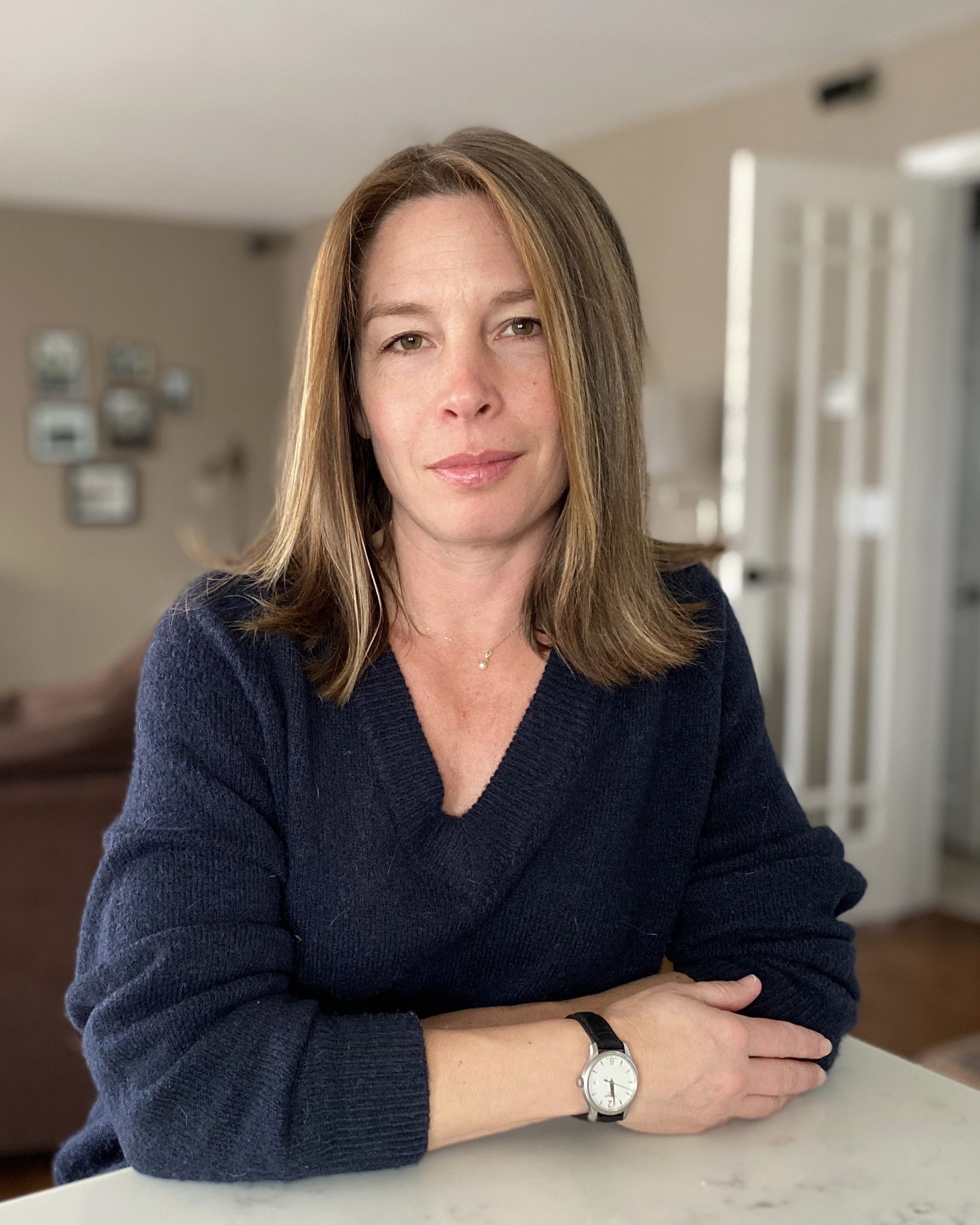Yesterday I asked Ian, my husband, how he’d feel if we were traveling somewhere and I offered to put his carry-on into an airplane’s overhead bin for him. Would he let me do it?
No, he said, he would not.
I asked why.
“Because I can do it myself,” he said. “Why would I want you to do it? It makes no sense.”
He didn’t say this because he’s a man and I’m a woman. Which is to say he wouldn’t feel “emasculated” if a woman helped him with something. It’s just that he doesn’t understand why he’d ask me, or anyone else, to do something for him that he’s capable of doing, himself. If his bag were too heavy for him to lift, he’d simply take out the heavy stuff before heading to the airport. Why pack a bag he can’t carry?
Good question.
I watch a reality TV show called Summer House that, with one little dinner party scene, made me see how responsible we women are for own lack of forward progress and the situation we find ourselves in today.
Where we are:
- our right to make our own healthcare decisions (such as whether to terminate a pregnancy, for example) is easily taken out of our hands
- we’re still having to try to convince the general public that men and women are equally valuable/viable/rational/capable
Summer House, for those who haven’t seen it, documents (“documents”) a bunch of New York City-ers between the ages of 30 and just-40 who rent a Hamptons house for weekend summer parties. In the enlightening episode, a man and a woman argue across a crowded dinner table in the Hamptons house. The two aren’t a couple; they’re just in the same friend group. The woman’s boyfriend sits silently next to her during the exchange.
Later that night, the woman chastises her boyfriend for his failure to intervene. He hadn’t stood up for her. He’d allowed a man to speak to her a certain way, to say things to her that she found offensive. Why didn’t he say something?
It’s important to note that there was no threat to the woman’s safety during the argument. It’s also important to note that the woman in question is pretty good at verbally hitting back when her opponent is a woman. She uses her words and calculates retorts as well as anyone else. Still, she thought her boyfriend should have taken over for her during this exchange for no other reason than that the person she was arguing with was a man. As she saw it, that put her in a position of needing, apparently, “protection.”
It’s disturbing to see, in this day and age, the infantilization of women that we women not only allow, but encourage. Or, maybe, demand.
I used to be one of those women who simply expected men to do certain things. I don’t know where I got it, where it came from, but I do know that Ian was the one to teach me what equality really meant. He, a far better feminist than I, was the first to refuse to give me his jacket when I got cold on a walk in the woods. We’d both known what the temperature would be. We were both capable of making an informed decision about the weight of the jacket to bring. He chose wisely; I didn’t. When I got cold, he joked that I should have chosen a different jacket. He did not give me his.
Why should he? Then he would have been cold.
His refusal to cater to me as if I were a child was new to me, and a little frustrating. It was also incredibly sexy — this man respected my autonomy, expected that I was mature enough to recognize that I’d have to suffer the consequences of my own decisions, and refused to allow me to inconvenience him simply because I’d made a stupid choice.
In the two decades I’ve been with Ian, I’ve gotten so used to being taken seriously and treated with respect that I assumed women everywhere, especially those younger than I am, were either in the same place or way ahead of me.
But then I saw that episode of Summer House. And then I saw another episode of the same series in which the young women leave their heavy luggage in the entryway of the Hamptons house, expecting the men to carry it upstairs for them.
A lot of women pack heavy. Heavier than we can carry — because we take for granted that a man will lift the weight for us in much the same way children expect an adult to be on hand to help them.
- We expect a man to step in if we’re arguing with a man the way a parent would step in to defend a child in an altercation with someone much older.
- We expect a man to lift our heavy bags as an adult would for a child.
- We assume in the way of narcissistic children that our needs, our wants, our desires take precedence over a man’s. (Do you remember the story of the woman who accused a comic actor of being sexually aggressive because he didn’t read her non-verbal cues about what she wanted from him the night she went to his apartment, while the entire night he’d been sending his own very clear cues about what he wanted — and she ignored them?)
- We’ve started using language previously reserved for pedophiles when older men pursue younger, legally adult, women, suggesting that women 18 and older still aren’t adequately emotionally or intellectually equipped to make adult decisions or enter into adult romantic relationships. For example, after Taylor Swift released the 10-minute version of her song “All Too Well,” which is understood to be about her relationship with Jake Gyllenhaal (she was 20, and he was 29 — or, as one writer put it, “almost 30”), one female writer on Medium characterized the older male in such relationships as “manipulative” and “exploitative,” even alluding to “grooming,” while another referred to Swift at age 20 as a “girl,” “innocent” and “naïve” and “vulnerable.”
- We women have yet to successfully demand that we be included in the Selective Service registry along with men until they abandon the system entirely, which is just another example of our comfort with being protected, sheltered, treated like children.
- Though people are justifiably mad that anyone would be criminally charged for terminating a pregnancy, it’s hard to find evidence of anger directed at Texas’s abortion law, which “does not create a criminal cause of action against the mother or parent. It does create a criminal cause of action against doctors.” Is this not a clear message that, to the legal system, women are perceived as having so little agency that we won’t even be blamed for our own newly criminal decision? The simple things don’t know what they’re doing, bless their pea-sized brains. They’ve been brainwashed, manipulated, sold a bad bill of goods! Why, they’re like toddlers, that way. You really can’t blame ’em when they act out. You just gotta give ’em a little tap on the ass, send them back in the right direction, and leave the legal battles to the grown-ups.
Is it any wonder we aren’t taken as seriously as we (say we) want to be taken when we hardly take ourselves seriously as capable, competent, rational, human beings?
How is it that there’s an automatic understanding among men that they can open their own doors/carry their own shit/fight their own battles, and that the understanding among women is, “Oh, he’ll do that for me”?
In addition to everything else we women are doing to try to ensure we’re paid and treated equally, it’s just as important to behave in our daily lives in a way that communicates that we see ourselves as anything but helpless.
We need to bring our own coats. Pack bags we know we can lift. Fight our own verbal battles (I mean, this one really vexes me…it’s absurd that a man should have to step in to “protect” a woman in a word fight; what, he’s going to be better at it?). Etc.
I know the little protections created in the bad old days of chivalry can seem kind of romantic, but the thing about needing protection is that it says, “I’m a walking weakness in need of guidance and direction and help. Help me, Daddy.”
Someone who needs that much protection, that much hand-holding and coddling, certainly doesn’t inspire any confidence in their ability to make reasonable, informed, grown-up decisions.
“Founded on principles so pure, the order of Chivalry could not help but occasion a pleasing, though a romantic, development of the energies of human nature. But as in actual practice every institution becomes deteriorated and degraded, the devotion of the [chivalrous] knights often degenerated into superstition, — their love into licentiousness, — their spirit of loyalty or of freedom into tyranny and turmoil, — their generosity and gallantry into hare-brained madness and absurdity.” — Sir Walter Scott, “An Essay on Chivalry,” 1818
Thanks for reading! You can also find me at kristentsetsi.substack.com, where I write the newsletter The Choice: Politely Pounding Pronatalism to a Pulp. And if you enjoyed this post, you might also enjoy my novel!
“The Handmaid’s Tale and The Farm, to name a couple, have opened the dystopian genre to questions about reproduction; however, The Age of the Child is one of the first I’ve read to really consider the issue of reproductive rights and attitudes so deeply.” — Rebecca Maye Holiday, author of The Beaches
“Important social commentary in a moving story.” — Readers’ Favorite


Kristen Tsetsi is the author of the post-Roe v. Wade novel The Age of the Child, called “scathing social commentary” and “a novel for right now.” She is also the author of the novels The Year of Dan Palace and Pretty Much True (studied in Dr. Owen W. Gilman, Jr.’s The Hell of War Comes Home: Imaginative Texts from the Conflicts in Afghanistan and Iraq). Kristen’s interview series at JaneFriedman.com offers behind-the-scenes insights into all things writing and publishing.




Not sure when you wrote this because their is no date and I accidentally stumbled on this after reading about Gibbs school, after searching for a school where my grandmother used to teach in Boston, so this is kind of random, but I do wonder if you still feel the same way about your husband not giving you his coat. For 27 years I was with a man who I wouldn’t have dreamed of asking for his coat because he wouldn’t have given it to me and would have chastised me for not thinking of the weather and would have said exactly what yours did, that if he gave me his coat then he’d be cold. Well after it was over, I was on a long walk with a lovely man who gave me his sock when I had a blister even though I had been the fool who’d chosen not to wear socks with my sneakers and should have known better. I even tried not to take it because then we’d both get blisters, but he insisted and said that then we’d be in it together. I fell in love in that moment. Not because I wanted to be babied, but because I was so unused to being shown those little kindnesses and so used to doing everything for myself and for others, too, that I was floored by that simple act of kindness. I realized that I, like so many women, had been giving the proverbial coat off my back for everyone else in my life, including my ex husband, that I’d fooled myself into thinking it was a kind of equality instead of just more emotional and physical labor that benefited others but not me. What separates those who we hold dear from random acquaintances is our desire to make those we adore more comfortable than our self in those brief moments when we can make that difference. In no way does that entitle you to his coat, but those occasional indulgences are sweet and important to intimate relationships. I’ve given up my own comfort in small similar ways to my kids, to my parents, and to friends and to my partners. Not constantly, but in those small moments. I appreciate your perspective, but I’m just pushing back to see if you’ve convinced yourself that this is some elevated sense of equality because he didn’t offer it and you needed to make peace with that, or if this is how you truly feel. I’d understand because for many many years, I made peace with a lot of things that disappointed me because I wasn’t prepared to expect more.
I do know the difference between their and there, by the way… typos are my weakness.